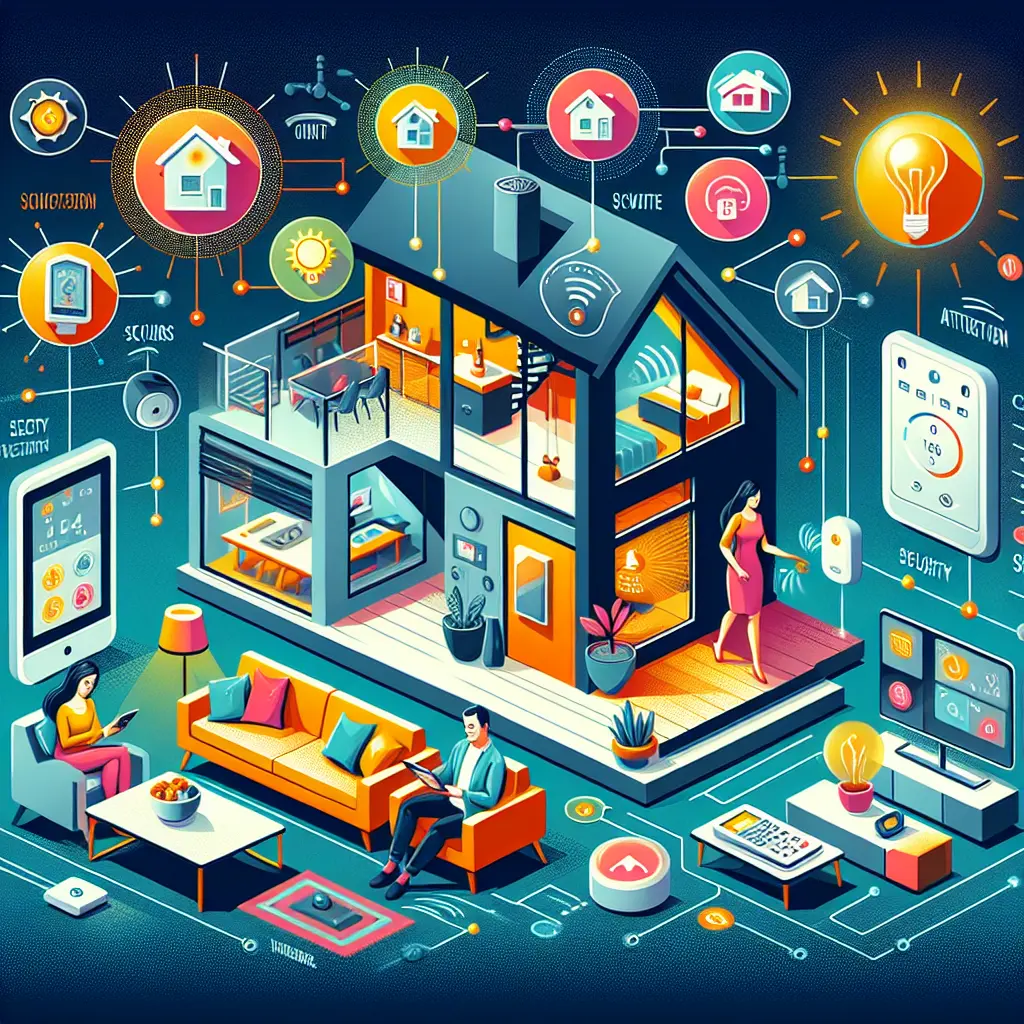
In the realm of modern living, the revolution brought by smart home automation is profound and far-reaching, transforming our daily routines into seamless, efficient experiences. From enhancing home security to optimizing energy usage, the benefits of smart home automation are diverse and impactful. In this comprehensive exploration, we delve into the myriad advantages that smart home technology offers, while also spotlighting some of the latest innovations and deals in the sector.
1. Unparalleled Convenience At the heart of home automation advantages is convenience. Smart devices, such as the Google 4th-Gen Nest Learning Thermostat, offer homeowners control over their environment with unprecedented ease. This latest iteration of Google's thermostat learns your habits and adjusts your home's temperature automatically, ensuring comfort while optimizing energy use. Scheduled to be released soon, this device epitomizes the convenience home automation offers (source).
2. Enhanced Security One of the most compelling benefits of smart home automation is the enhanced security it provides. Security smart home systems integrate various components like cameras, motion sensors, and automated locks, all controllable from a smartphone. This integration allows for real-time alerts and remote monitoring, fortifying home security and providing peace of mind.
3. Energy Efficiency Smart home technology plays a pivotal role in promoting energy efficiency. Devices like the Amazon Smart Thermostat, which was recently discounted to $52 in an early Prime Day deal, help manage heating and cooling efficiently, significantly reducing energy consumption and utility bills (source).
4. Cost Savings The initial setup cost of a smart home can be offset by the substantial savings these systems offer. Automated home systems optimize electricity usage and prevent wastage, leading to lower monthly expenses. Over time, these savings can be substantial, making smart home automation a wise investment.
5. Remote Home Management The ability to manage your home remotely is a significant advantage offered by smart home systems. Whether you’re at work or on vacation, technologies like Google’s new $100 TV Streamer, which doubles as a smart home hub, allow you to control and monitor your home from anywhere (source).
6. Future-Proofing Your Home Investing in smart home technology is not just about the conveniences of today but also about future-proofing your living space. The future of home automation looks promising, with technologies like Matter - a new connectivity standard that ensures different smart devices can work together seamlessly. The newest Roomba, for example, not only washes its own mop but will also be compatible with Matter, highlighting the forward-thinking integration of smart home devices (source).
7. Integration with Entertainment Systems The blending of smart home control with entertainment systems is a trend gaining momentum. The recently announced Google TV Streamer integrates seamlessly with other smart home devices, offering control and connectivity that extends beyond mere content streaming to managing lighting and security from one interface (source).
Recent Innovations and Deals in Smart Home Technology
Google’s 4th-Gen Nest Learning Thermostat and Google TV Streamer: Set to revolutionize how we interact with our environments, these devices not only promise advanced features but also integration with broader smart home systems for enhanced user experience. While pricing and specific release dates are yet to be announced, expectations are high for these innovative products.
Prime Day Tech Deals: For those looking to upgrade their smart home setup without breaking the bank, Amazon’s Prime Day offers an excellent opportunity. Smart gadgets like Echo Dots, Fire TV Sticks, and more can be snagged for $100 or less, making it easier to expand or start a smart home system (source).
The New Roomba: iRobot's latest Roomba model not only vacuums but also mops your floors and cleans itself afterward. Its compatibility with the new Matter standard ensures it can easily integrate into any existing smart home ecosystem (source).
The Impact of Google’s Gemini on Smart Homes: Google's Gemini project is set to further blur the lines between digital and physical spaces. While details are scant, its integration into Google’s suite of smart home products is inevitable and likely transformative (source).
In conclusion, the landscape of smart home automation is ever-evolving, offering enhancements that extend beyond mere convenience to substantive improvements in security, energy efficiency, and overall quality of life. As we continue to embrace these technologies, our homes become more responsive, more secure, and more aligned with our environmental values.
As we look ahead, the fusion of IoT and smart home benefits will only deepen, bringing about innovations that we can only begin to imagine. Staying informed and adaptable will be key in leveraging the full potential of these transformative technologies.
Vivian Chase